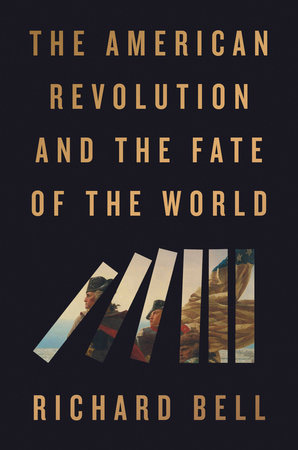Richard Bell’s The American Revolution and the Fate of the World reframes the Revolution as a global conflict, not a local uprising.
Myths of moral inevitability collapse under the reality of chaos, contingency, and worldwide consequence.
Enslaved, Indigenous, and immigrant lives were central to both the Revolution’s victories and its unfinished promises.
In The American Revolution and the Fate of the World, Richard Bell dismantles the storybook myth of America’s founding, revealing the Revolution as a global war that reshaped economies, empires, and identities far beyond Boston or Yorktown. Its rhetoric of freedom masked deep contradictions — victories built on the labor, displacement, and suffering of those denied the liberty it proclaimed. Enslaved people, Indigenous nations, and foreign allies emerge not as background figures but as co-authors of history, whose actions and sacrifices helped shape the modern world that followed.
The Revolution’s most enduring legacy, Bell argues, is the understanding that freedom is not a finished achievement but an ongoing, collective experiment. Two and a half centuries later, true patriotism lies not in blind reverence, but in honest revision — having the courage to tell the full story, even when it challenges the one we were taught to believe.












